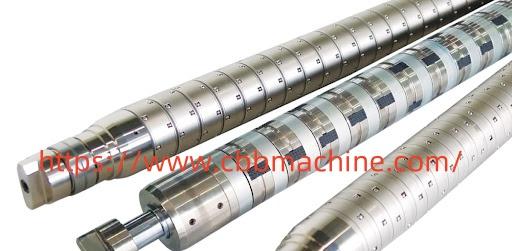In modern roll-to-roll processing systems, choosing the right Differential Air Shaft is essential for maintaining stable tension and consistent web alignment during slitting or rewinding operations. These shafts, commonly used in packaging, printing, film, and paper industries, allow multiple cores on the same shaft to rotate at different speeds. This unique capability helps prevent material slippage, wrinkling, or tension inconsistency, which is critical when handling materials of varying thickness or tension sensitivity.
A differential air shaft is typically composed of a main shaft body with internal air tubes, individual friction elements (often ball or roller mechanisms), and expanding elements that grip the core. When air pressure is introduced, it activates the expanding elements to securely hold the cores. The differential mechanism then allows each core to operate with precise torque distribution, which is especially important when multiple rolls are wound at once.
One major advantage of using such a shaft is the reduced material waste. Without differential torque control, slight variations in roll diameter can cause over-tightening or under-tightening on some rolls. This often leads to damaged edges or telescoping. With a properly installed and calibrated shaft, each roll maintains uniform winding quality, even with unequal material feeds.
Differential air shafts also contribute to smoother changeovers. Since they adapt automatically to varying core tensions, operators spend less time manually adjusting torque settings. This makes them a favorable choice for high-speed, high-efficiency production environments where downtime must be minimized.
From an engineering perspective, these shafts are manufactured using robust materials like hardened steel or aluminum alloys to ensure durability under heavy load conditions. Additionally, the design allows for easy disassembly, enabling quick maintenance and replacement of individual friction segments without replacing the entire shaft.
While there are many shaft systems available, the differential air shaft offers superior adaptability for processes involving variable tension materials or multiple rolls. It's ideal for converters that need flexibility without compromising on precision. With growing demand for multi-web processing, more facilities are transitioning from fixed-torque shafts to differential types to maintain competitiveness.
As manufacturing standards evolve, incorporating advanced tension control solutions like this will become increasingly critical for ensuring product quality and cost efficiency. Whether working with delicate film, stretch wrap, or technical textiles, investing in the right shaft system pays off in both performance and longevity.
To explore a full selection of shaft systems and other web-handling equipment, visit www.cbbmachine.com.

